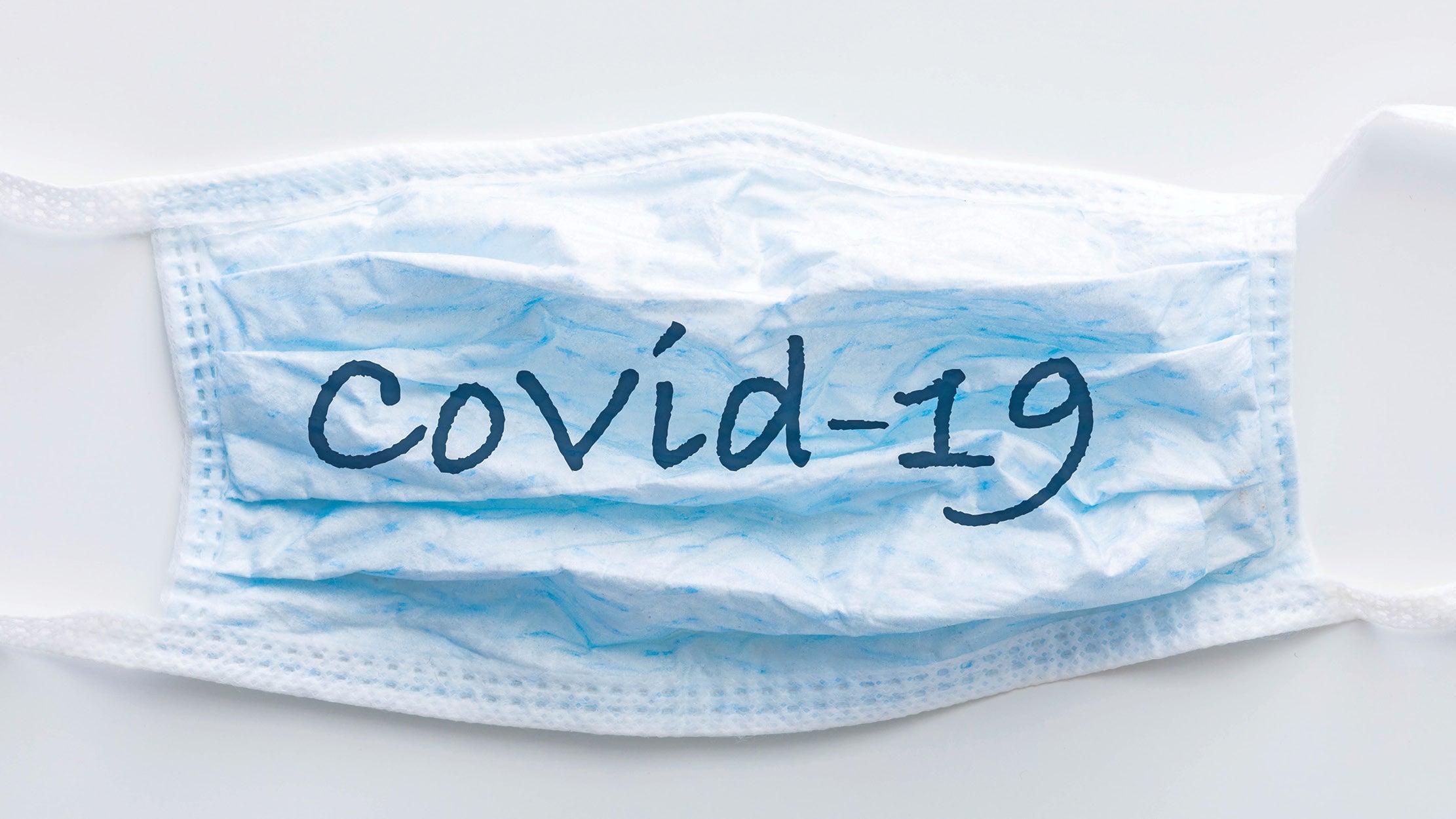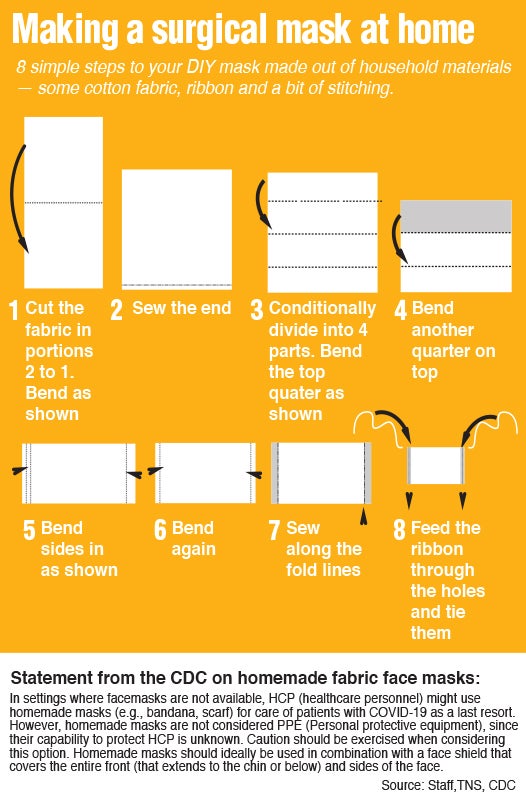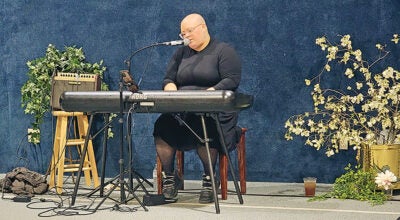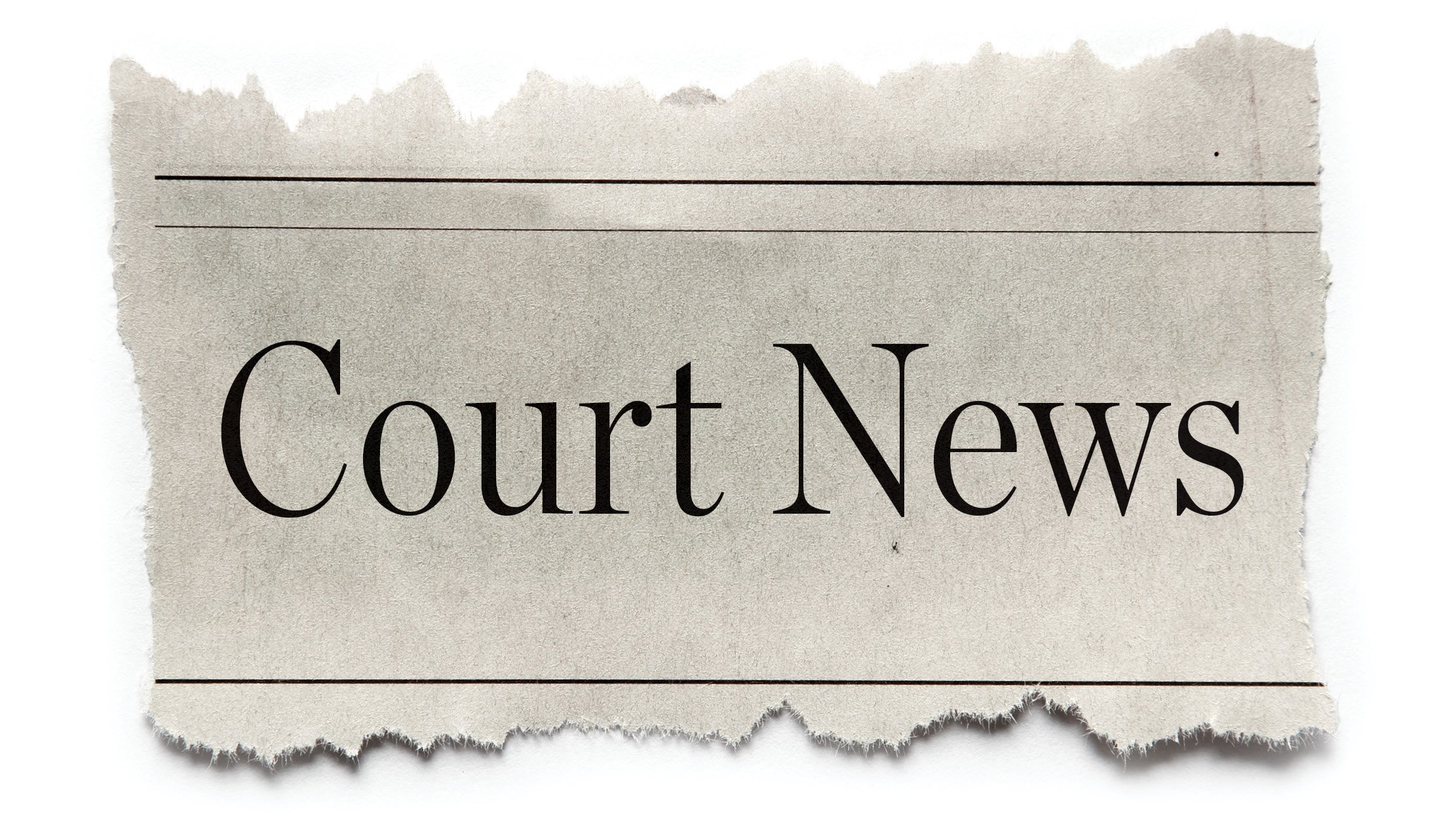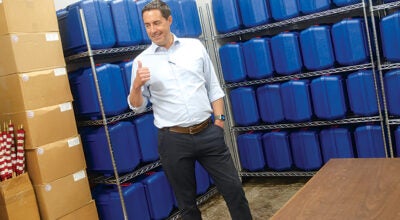Trump promotes non-medical masks
Published 7:55 am Tuesday, April 7, 2020
(MCT) — President Donald Trump said the Centers for Disease Control and Prevention now recommends that people wear “non-medical cloth” face coverings when entering public spaces.
However, masks are an extra precaution, not a replacement for what we should already be practicing amid the coronavirus pandemic: regular hand washing, not touching your face, and social distancing of at least 6 feet.
If you find yourself trying to make a homemade mask, be sure to follow some of these important guidelines: Good coverage is important. Try to find a nonwoven material.
A mask should be snug and reach above the bridge of the nose and below the chin.
In a Washington Post interview with Peter Tsai, the scientist who invented the electrostatic charging technology that N95 masks use, Tsai recommended shop towels as a strong alternative to fabric that would filter out droplets better than cloth.
The shop towels can even be used as a filtering layer if you decide to sew a cloth mask. This material is not perfect, but it is inexpensive and can be found at most auto supply or big box stores.
The other required materials are common household items: rubber bands, paperclips, a stapler and tape.
These DIY masks will stop large droplets from getting in or getting out if worn properly.
The CDC website says wearing cloth face coverings in public settings where other social distancing measures are difficult to maintain (e.g., grocery stores and pharmacies), especially in areas of significant community-based transmission.
CDC also advises the use of simple cloth face coverings to slow the spread of the virus and help people who may have the virus and do not know it from transmitting it to others. Cloth face coverings fashioned from household items or made at home from common materials at low cost can be used as an additional, voluntary public health measure.
Cloth face coverings should not be placed on young children under age 2, anyone who has trouble breathing, or is unconscious, incapacitated or otherwise unable to remove the mask without assistance.
The cloth face coverings recommended are not surgical masks or N-95 respirators. Those are critical supplies that must continue to be reserved for healthcare workers and other medical first responders, as recommended by current CDC guidance.
For information on how to make a mask, go to www.cdc.gov/coronavirus/2019-ncov/prevent-getting-sick/diy-cloth-face-coverings.html.


